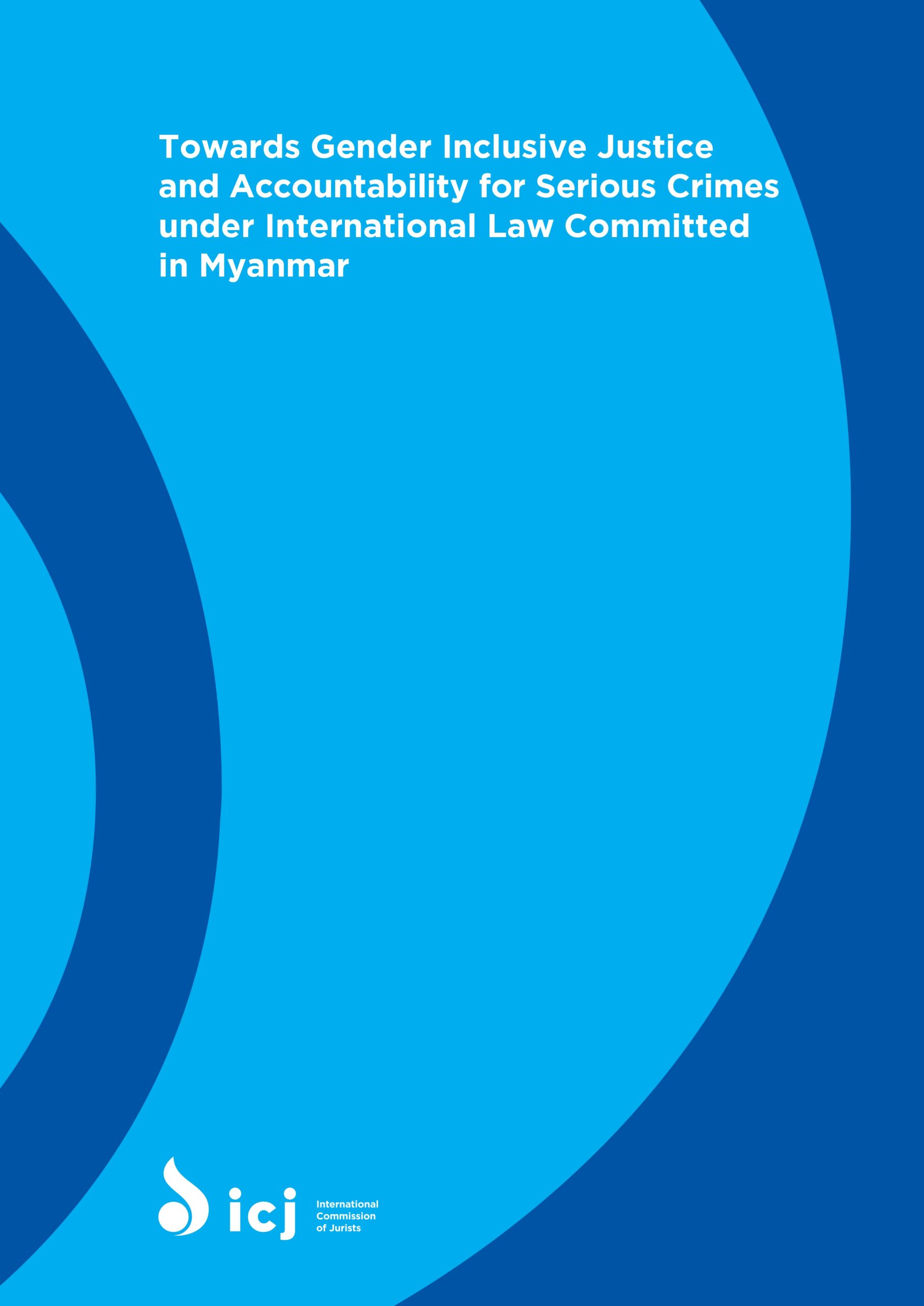International accountability bodies and actors have taken significant steps towards achieving gender-competent justice, including, in particular, for survivors of war crimes, crimes against humanity and possible genocide in Myanmar, but can do more to integrate a stronger gender perspective in their work, based on the detailed findings and recommendations in a new report published by the International Commission of Jurists (ICJ).
The 68-page report, Towards Gender Inclusive Justice and Accountability for Serious Crimes under International Law Committed in Myanmar, is the first report of its kind that:
- Analyzes and evaluates the specific measures and strategies implemented by international accountability bodies and actors to address and provide legal remedies for gender-based crimes in Myanmar; and
- Makes specific recommendations to strengthen gender justice.
“This report by the ICJ echoes many of the same challenges we have documented, including the under-investigation and under-prosecution of gender-based crimes in Burma/Myanmar,” said the Women’s League of Burma (WLB), in the foreword it contributed to the report.
“As we continue our work on the ground, supporting women who face atrocities, we urge the international community to heed the recommendations within this report. Meaningful progress toward accountability in Burma/Myanmar must prioritize gender competency at every level, from investigations to prosecutions and reparations,” the WLB added.
The military junta and other actors in Myanmar have perpetrated a harrowing array of human rights violations and abuses in Myanmar, including in the context of the 2016 – 2017 “clearance operations” against the Rohingya and, since the 2021 military coup, more broadly against the civilian population, including against members of different ethnic and religious groups. For example, the recent ICJ’s briefing paper, Unseen and Unheard: Violations of the Human Rights of Women Deprived of Liberty in Myanmar, highlighted the perpetration of egregious human rights violations against women deprived of liberty.
“The ICJ’s new report emphasizes that atrocity crimes have gendered dimensions that are often ignored, with rape, other acts of sexual violence, reproductive violence and other crimes being committed against women, girls, men, boys and LGBTQI+ persons based on their gender, without adequate recognition or remedy,” said Melissa Upreti, ICJ Regional Director for Asia and the Pacific.
International judicial bodies and accountability mechanisms and actors – such as the International Criminal Court (ICC); the Independent Investigative Mechanism for Myanmar (IIMM); judicial and State actors in proceedings before the International Court of Justice; and domestic investigations under the principle of universal jurisdiction in different countries – have taken some steps to address the accountability deficit for atrocity crimes in Myanmar.
These accountability actors and mechanisms play a crucial role in identifying gender-based crimes and recognizing the gendered harms of all crimes. They are obligated to ensure that their engagement with witnesses adheres to best practice survivor-centred and trauma-informed approaches. While some of the advancements they have made are notable, each faces unique challenges and opportunities when grappling with gender-competent justice.
Based on a comprehensive analysis and extensive consultations with accountability mechanisms’ representatives, the ICJ emphasizes the necessity for improved coordination among international mechanisms, more proactive outreach to affected communities — especially marginalized groups — and the inclusion of gender expertise at every stage of investigations and prosecutions.
Key recommendations in the report include the need for better integration of a gender analysis from start to finish in all legal processes, targeted capacity-building of the accountability bodies and actors, and ensuring that legal charges fully capture the gendered nature and scope of crimes. Additionally, the report calls for enhanced transparency and public information efforts, considering that victims/survivors typically have limited access to resources and information and often face specific risks from their involvement in accountability processes, which must be holistically addressed.
While the trajectory toward gender-responsive justice is positive, sustained commitment and enhanced collaboration are needed to fully realize the goals of accountability and reparations. Only then can the justice process genuinely address the gendered dimensions of these atrocities, contributing to long-term empowerment and healing for all affected communities in Myanmar.
Download
The full report can be downloaded here (PDF).





